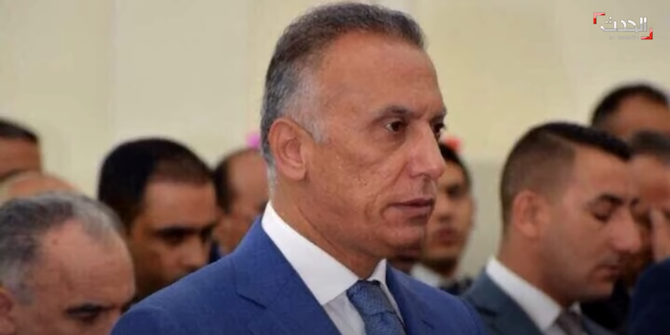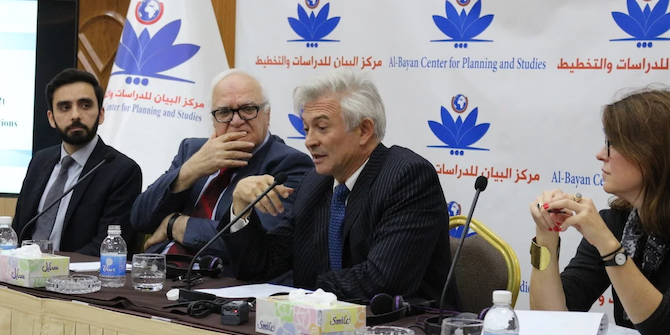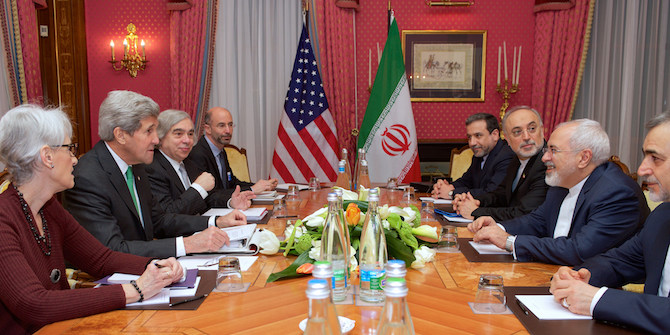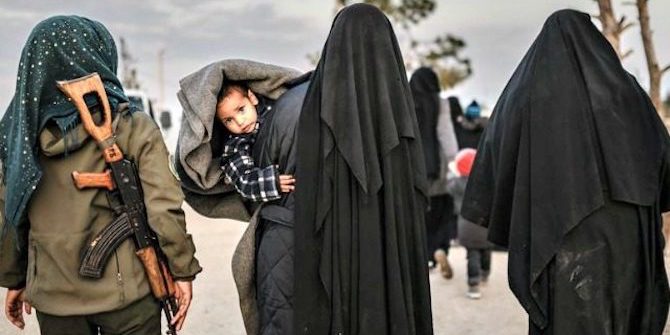by Raad Alkadiri

After Mohammed Tawfiq Allawi and Adnan Zurfi failed in their attempts to form a new Iraqi government, Mustafa Kadhimi, Iraq’s head of national intelligence, is now in the hot seat. Whether he will be successful remains to be seen. However, Kadhimi does appear to have some advantages over his two predecessors: he is the consensus choice of Iraq’s mainstream Shi’a leadership, and he enjoys broad support across the political spectrum, including parts of what remains of the protest movement. That does not guarantee he will be able to form a government, but his chances look good at present.
In the end, much will depend on how much Kadhimi tries to shake up the existing political status quo that Iraq’s political elite is so desperate to preserve. What sunk both Allawi and Zurfi was the suspicion among Iraq’s political oligarchs that they would challenge the ethno-sectarian quotas (muhassasa), corruption and party power that characterise the Iraqi political system, and which provides the foundations for the patronage networks that sustain it.
This status quo has undoubtedly evolved since Saddam Hussein’s regime was ousted in 2003. The ethno-sectarian identity politics that have defined the post-2003 political order has increasingly been challenged, both by a small minority within the political elite and by an angry population whose sense of alienation has grown as a result of dysfunctional state institutions, poor governance and endemic corruption. Issue politics have begun to resonate, and were the key drivers for the protest movement that exploded in Baghdad and Iraq’s southern provinces in 2019.
At the same time, mainstream Iraqi politics has become more fractured over the past 17 years. Political disputes and rival aspirations have created lasting schisms in the identity-based blocs that dominated the early years of the post-2003 regime, leading to greater factionalism and struggles to reach consensus over key issues. In many ways, Iraqi politics has been reduced to the lowest common-denominator – protecting the patronage-based muhassasa system that preserves the parties’ power and prerogatives – with the factions unable to reach consensus on much else. There is not even a common vision among the political elite about how the status quo should be best protected; only that it should be, especially in the face of an existential threat like the one that the protest movement posed.
These two factors – common purpose and atomisation of players – have defined the search for a new prime minister and cabinet since Adel Abd al-Mahdi was forced to offer his resignation in November last year. And they will define the room for manoeuvre that Kadhimi and his government enjoy if they succeed in winning the Council of Representatives’ (CoR) backing in the next two weeks.
Kadhimi, a former journalist and human rights activist, may be a man of integrity and may have reformist instincts. But he is no maverick or regime outsider, and the manner of his selection suggests that the political elite believes that he will not rock the boat and threaten the status quo in any meaningful fashion. He was not the oligarch’s first choice by any means, yet he is clearly seen as an acceptable compromise, even by those factions, such as Fatah and associated political wings of some Shi’a militias, who rejected him initially as being too pro-American and too inimical to their political and economic interests. Kadhimi owes his opportunity to a little bit of last-man-standing combined with cold-eyed cynicism among the political elite.
The shape of Kadhimi’s cabinet is likely to reflect this fact. Unlike Allawi, Kadhimi already seems more amenable to working closely with the main CoR factions to choose his government line up, partly in recognition of the fact that Iraq is still nominally a parliamentary system. A committee representing the political factions is supporting the selection process, and Kadhimi has acquiesced to demands that his cabinet reflect ethno-sectarian balances.
His policies are likely to be similarly influenced. A Kadhimi-led government is unlikely to alter Iraqi foreign policy in any meaningful fashion. While his links to the United States are well documented and he is credited with helping to improve ties with Iraq’s Arab neighbours, Kadhimi ran an Iraqi National Intelligence Service (INIS) that worked in tandem with parallel bodies in Tehran, especially at the height of the campaign against Islamic State. He would not have won the backing he did for the premiership without Iran’s tacit approval, and the Islamic Republic has greeted his selection warmly.
Domestically, as well, a Kadhimi government may be expected to chart a relatively conservative course. An early test of its intent will be how it handles new election legislation that will determine, amongst other things, voting districts and the make-up of the independent electoral commission. Holding early elections is one of the priorities for the interim government, and Kadhimi – if he succeeds in forming a cabinet – will need to choose between rival legislative proposals, some of which preserve the power of the mainstream political factions and others which potentially erode it. The legislation will also need to set a date for the polls, something that the mainstream parties have sought to delay.
A second big test for any new government will be the delicate task of deciding if and how to hold to account groups and institutions accused of killing over 600 protestors during last autumn and winter’s demonstrations. Kadhimi was popular among the protest movement because of the steps INIS took to protect demonstrators. Were he to form a government that pursues allegations against perpetrators of the violence against the protestors, however, he will quickly ruffle the feathers of some of those who supported his nomination.
This conundrum points to a bigger question, namely: what does a government that broadly protects the political status quo (whether it is led by Kadhimi or anyone else) mean for Iraq’s future? If the core issues that undermine the state – muhassasa, corruption, the monopoly of the current political elite over power – are not tackled, and if no meaningful reform is introduced, then how can the popular alienation that drove the protests last autumn and winter be reversed, and how can the legitimacy of the current regime be recuperated? The flaws in the political order are structural, not associated with individuals. Changing the prime minister without addressing these flaws is meaningless.
Indeed, the post-2003 regime’s credibility is likely to face its sternest challenge over the next few months as the dual impact of the COVID-19 virus and the associated fall in oil prices test its institutional capacity to the hilt. Officials numbers suggest that Iraq has avoided the worst of COVID-19 so far, but if it does turn into an epidemic, it is likely to quickly overwhelm Iraq’s underfunded and badly maintained health system, leading to a national emergency that the government will be incapable of managing. The result may not be an immediate resumption of demonstrations, but if the regime’s response is inept, it will almost certainly face popular fury at some point in the future.
The government’s ability to protect popular welfare will be further undermined by an oil-price crash that threatens to cut government revenue by more than half and leave it incapable of meeting the costs of public wages, benefits and services, even if Iraq defers all capital spending (which is impossible) and dips into the $55 billion or so it holds in foreign reserves. The new OPEC+ deal may offer some fiscal respite in the medium term, but it will not raise prices enough to allow Iraq to cover its current-spending needs. Even with international assistance, significant cuts in public spending are therefore likely to be necessary, and the pain will be felt by the population at large, either directly or through a fall-off in government contracts upon which much of the private sector depends. Iraq’s social contract with its population is already in tatters; a prolonged fiscal crisis is likely to test the bounds of popular patience to its breaking point.






